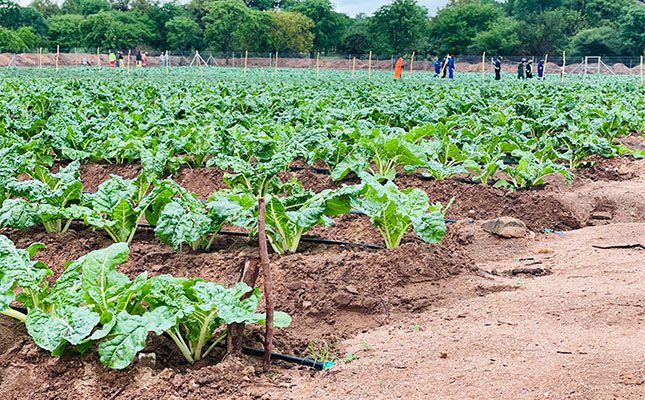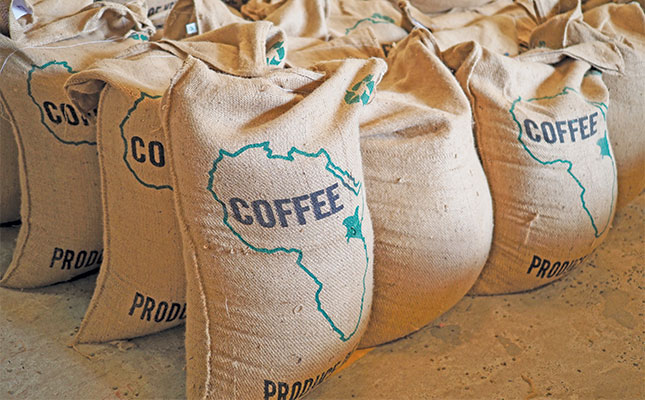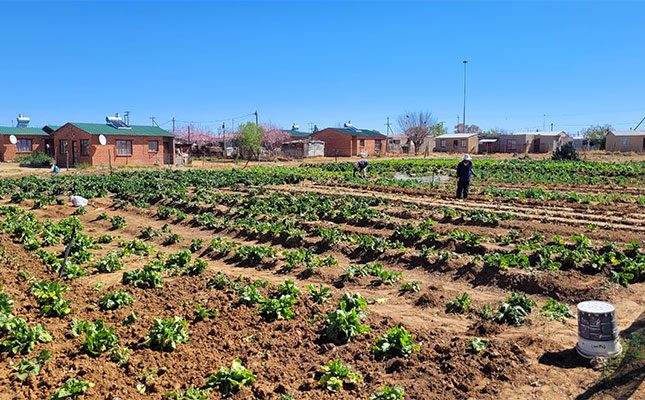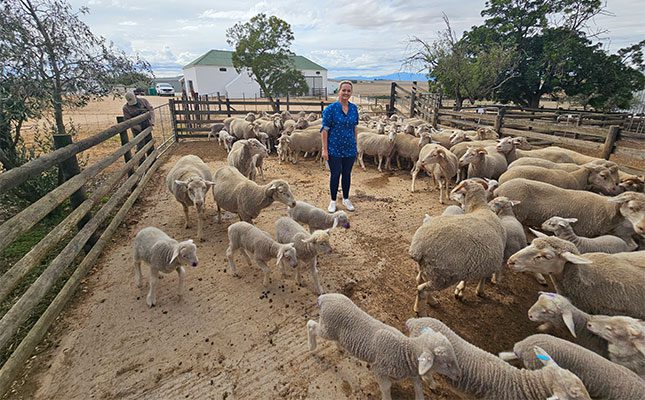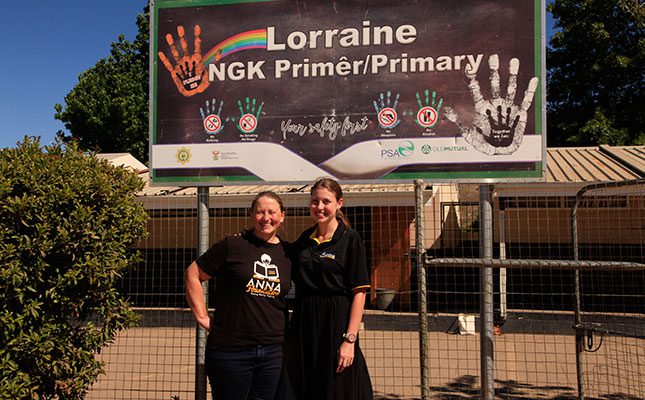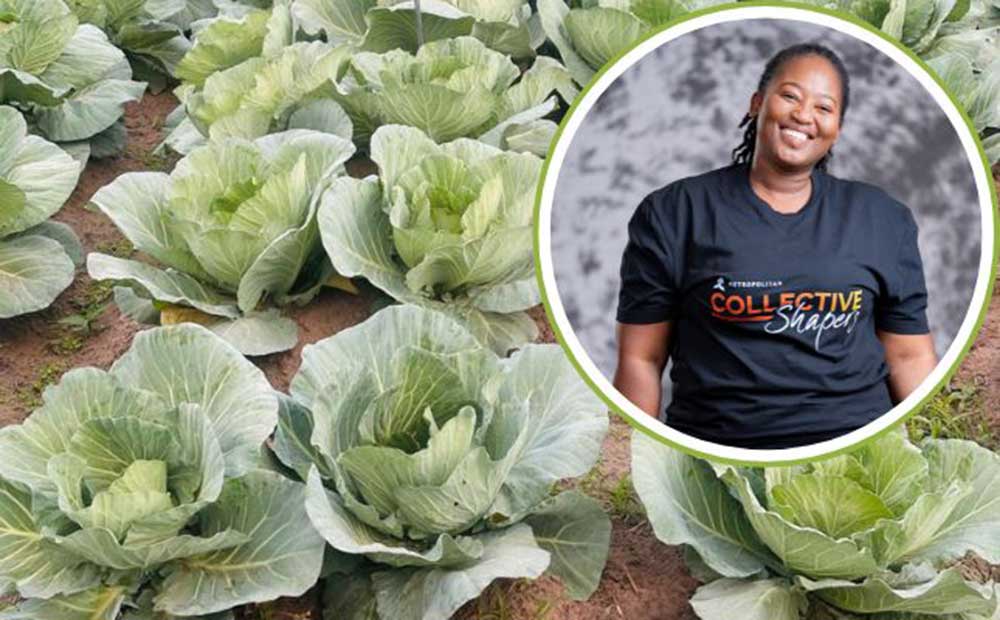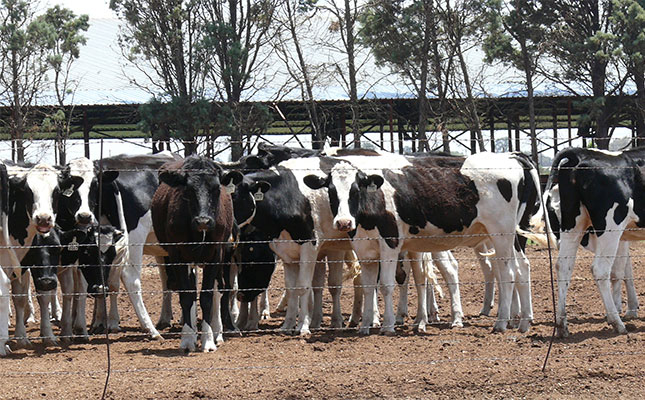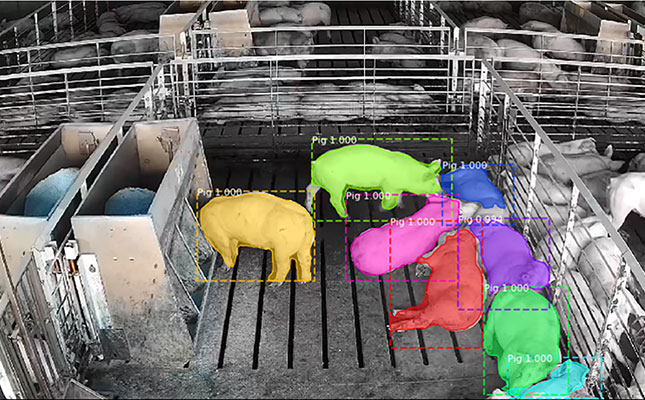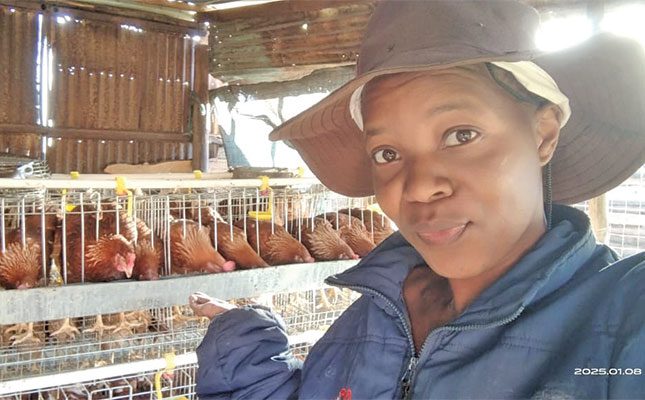
Suduka says it is only with the help of the Eastern Cape Rural Development Agency (ECRDA) that her business has taken off. She explains that the formal help she received from the agency has had a significant influence on her business.
“The ECRDA’s support has made a big impact on how we manage to buy layers and other necessities like feed and medication.”
With high input costs being a major challenge for poultry producers, the ECRDA’s support has been particularly invaluable, despite Suduka’s former experience in farming.
“I officially began farming independently in 2022, but I’ve gained experience by farming alongside my uncle and grandmother since 2019,” she says.
Suduka explains that her passion for farming began when she was helping her grandmother run her ‘backyard’ poultry business.
“I started helping my grandmother full time after completing my studies, and saw first-hand how food can be sustainably and locally produced.”
She adds that the importance of agriculture as a means of supporting communal and rural livelihoods further sparked her commitment to the sector.
“Chicken farming is a fast-moving industry with high demand, especially in the rural and township areas,” says Suduka. “It also requires relatively little land compared with other livestock.”
Suduka says she began her own chicken business when she realised it was a great opportunity to generate income and feed her family and community while empowering others.
Production
Suduka currently produces broilers and layers and operates a small hatchery. She also runs indigenous chickens, which are sold based on seasonal cultural demand. At any given time, she has 100 broilers and 150 layers in production. The layers produce around 1 500 to 2 000 eggs per month.
Broilers and layers are kept in poultry houses to manage their health, feeding, and growth, says Suduka.
The indigenous chickens are free range: “This allows them to forage naturally and develop stronger immunity.”
Suduka buys in day-old broiler chicks, while layers are bought at point of lay. The indigenous chickens are hatched in the on-farm hatchery.
The broilers are slaughtered at six to seven weeks old, or an average weight of 1,8kg to 2,3kg, and are processed on site.
The layers are in production for 72 to 80 weeks, after which they are sold off.
The eggs and live and slaughtered chickens are sold to private clientele in Suduka’s community and the surrounding ones, and sometimes local schools.
“We supply local spaza shops and small vendors,” she adds.
Suduka currently employs two general workers, but also hires seasonal workers during the busier periods.
“I manage my team through clear communication, training, and rotating responsibilities. I also prioritise safety and fairness,” she says.
Challenges
The biggest challenge she’s faced so far is access to infrastructure and machinery. High input costs, such as feed and medicine, are another barrier, as are limited access to large markets and transportation.
“Another challenge is being a young woman in a male- dominated industry, which often brings doubt from outsiders,” she explains.
Suduka adds that balancing the demands of the farm with family and community expectations can also be difficult.
Support
Suduka wants to eventually grow her operation into a large-scale commercial business. She also hopes to own her own commercial meat and egg processing facility.
“I hope to create more employment for women and the youth by providing agricultural training,” she says.
In addition, she wants to supply large retailers and schools with eggs and poultry meat.
“I want to be remembered as a woman who transformed her community through agriculture, created jobs, and empowered others, especially women and the youth, to rise through farming,” she says.
Her advice to aspiring farmers is to start small with resources available to them: “Even four chickens is enough to start.”
“Educate yourself continuously, whether it’s through in-person or online training. Watch videos and read. Don’t be afraid to fail; every mistake is a lesson.”
She adds that would-be farmers should find mentors or support groups to help them navigate the difficulties of farming.
“Stay consistent and passionate; farming isn’t easy, but it is rewarding!”
For more information phone Nomagcina Suduka on 062 652 2854.

